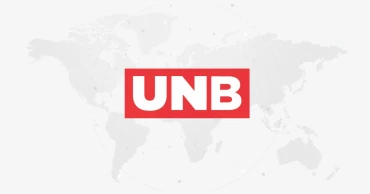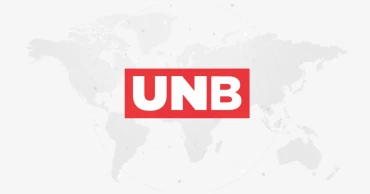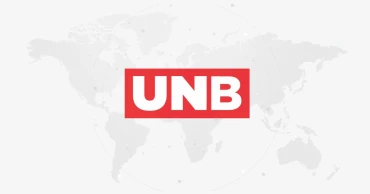Technical education
Lalmonirhat TTC rebounds to build a new generation skilled workers
With barely a third of its sanctioned workforce, the Lalmonirhat Technical Training Centre (TTC) is pressing ahead—quietly but resolutely—to keep its skill-building mission alive.
Despite having 81 approved posts, only 39 are currently filled. The challenge deepened when 16 officers and staff were transferred following an institutional merger, leaving the centre to operate with just 23 personnel. Yet, training continues without interruption, thanks to determined staff and revived leadership.
A recent UNB visit found the centre bustling once again after years of stagnation. A total of 412 trainees are now enrolled across two shifts, receiving instruction in 13 courses.
Established in 2006 beside the Haribhanga air base, around three kilometres from Lalmonirhat town, the TTC was created to produce skilled manpower under the Bureau of Manpower, Employment and Training (BMET).
Read more: ADB, Bangladesh sign $150m deal to boost technical training for employment creation
Today, it prioritises high-quality technical education tailored to the needs of both domestic industries and overseas labour markets, including the Middle East, Europe and the United States.
Under a new government initiative to boost skill development, the centre is adopting updated programmes designed to prepare competitive workers for international employment.
Trainees are provided with a supportive learning environment, and the centre assists in arranging employment after course completion, an approach that has significantly increased interest among local youth.
The TTC offers courses of two, three and six months, along with a 30-day housekeeping programme for domestic workers heading abroad. There are also specialised training options for SSC graduates to encourage self-reliance.
Read more: Ecnec nods setting up 50 technical training centres
Driving instructor and trade in-charge Kamruzzaman said the centre has evolved into a meaningful platform for producing skilled human resources.
He acknowledged that past leadership was marred by irregularities, which stalled progress and damaged the institution’s reputation.
“Under the new leadership of Principal Engineer Md Ainul Haque, the quality of training has improved considerably,” he said.
Senior Instructor (Electrical) Shri Jageshwar Barman said the TTC is now focused on producing technically competent workers capable of contributing both at home and overseas. Courses such as mobile phone servicing have been modernised and made more practical, he added.
Read more: Crisis of care: Manpower shortage cripples Chuadanga Sadar Hospital
Trainees Saiful Islam and Habibur Rahman, who are preparing for overseas employment, praised the sincerity of the instructors and the harassment-free learning environment.
Principal Engineer Md Ainul Haque, who recently assumed charge, said the centre had long operated in a fragile state but has now regained stability and is conducting regular training programmes.
“With only 23 staff against 81 approved posts, we face limitations. But I am confident that our trainees will acquire the skills necessary for self-employment and overseas work as capable, qualified professionals,” he said.
2 months ago
Ausbildung in Germany for Non-EU Students including Bangladesh
Germany is known for their robust economy and education system. Being one of the strongest economies in the world, there is a constant need for foreign labor in the economy in its diverse sectors. So how does Germany go about hiring this foreign labor? That is where Ausbildung comes in. In this article, we will tell you everything you need to know about Ausbildung for non-EU stuents and how students from Bangladesh can apply for Ausbildung in Germany.
What is Ausbildung?
Ausbildung means vocational training or apprenticeship. Germany has a strong industry-oriented job education which falls under its diverse categories of industries.
So rather than simply diverting the prospective workforce into class-based theoretical education, Ausbildung allows for a combination of theoretical and industry-oriented training to make every candidate industry ready.
Read More: Free Education in Germany for International Students in Bachelor, Masters, PhD
This allows for a hands-on experience that churns out a more effective and skilled labor force all the while reducing pressure on the higher academic degree. Unlike other countries of the world, Ausbildung is an important part of the German education system and an integral gateway to the industry.
Types of Ausbildung
In Germany, there are several types of "Ausbildung" or vocational training. The most common types of "Ausbildung" in Germany include:
Dual vocational training ("Duale Ausbildung")
Dual vocational training is the most common type of Ausbildung in Germany. In this curriculum, an Azubi or apprentice goes through both theoretical as well as practical learning. It’s a mix of technical as well as textbook learning and can last up to two and a half to three years. Apprentices are generally absorbed as skilled labor in their major fields.
Read More: Higher Study in Germany: Scholarship Opportunities for Bangladeshi and Other International Students
School-based vocational training ("Schulische Ausbildung")
School-based vocational training limits the learning prospects to the classroom only. In this type of Ausbildung, an Azubi will strictly be part of theoretical learning in a vocational training or technical training institute. Most of the students graduating from Schulische are generally certified, technicians.
Further vocational training ("Weiterbildung")
This form of training is for individuals who have already completed vocational training or have significant work experience in a particular field. It provides additional qualifications and skills that can help advance their career or improve their job prospects.
3 years ago
Govt aims to increase enrolment in technical education to 30% by 2030
The government plans to increase the number of students in technical education to 30 percent by 2030, from the existing 17 percent.
The government has taken the move as one of its principal aims to create skilled human resources in information technology compatible with the Fourth Industrial Revolution.
To that end, the government is laying emphasis on STEM (Science, Technology, Engineering & Mathematics) based education and training, according to an official document.
To meet the demands of the Fourth Industrial Revolution the government is giving importance to teaching appropriate technology-based subjects in the classroom and is allocating a budget to the National Curriculum and Textbook Board, or NCTB, for bringing necessary changes in the curriculum.
Also read: MoFA, Technical and Madrasa Education Division vow to modernize technical and madrasa education
In addition, the government has undertaken several important training programmes aimed at creating a skilled IT workforce.
For example, the Bangladesh Hi-Tech Park Authority has set a target to train more than sixty thousand young people by 2025 and one lakh by 2030 to fulfil the demand of the IT sector.
More than 36,000 people have already been trained under various projects and programmes.
The project implemented by the Bangladesh Computer Council (BCC) has provided training on Information and Communication Technology to about 2.34 lakh people and most of them are doing jobs in various ICT companies/organisations at home and abroad.
To adapt to the Fourth Industrial Revolution, including augmented reality and virtual reality, the document said, specialised labs will be set up at every university of the country and work is underway to set up 57 such specialised labs.
Work on establishment of Sheikh Kamal IT Training and Incubation Centres in 64 districts and 10 Digital Village is in progress to provide proper training for young people.
Besides this, the training programmes on emerging technologies, artificial intelligence, Internet of Things, block-chain, robotics, big data, cloud computing etc. are in progress.
Also read: Dovetailing higher and technical education needed: Dipu Moni
Prime Minister Sheikh Hasina recently in the first meeting of the Governing Board of the National Skill Development Authority (NSDA) held at her office (PMO) directed the officials to take necessary steps for realising the demographic dividend.
She mentioned that each year some 2.2 million individuals enter the job market. If this huge manpower could be trained up properly with appropriate training it would bring enormous benefits for the country.
She also asked the officials to pay attention to technology-based training programmes for grabbing the opportunities in the coming Fourth Industrial Revolution.
According to the official document, the enrolment rate in technical education, which was less than 1.0 percent 12 years ago, is now 17.25 percent.
The technical education enrolment rate is the percentage of secondary students enrolled in technical / vocational education programmes, including teacher training programmes.
In the 2022 academic year, 26,846 students have been enrolled in pre- vocational courses from 6th to 8th grade and 20,613 students from the 9th grade of 134 technical schools and colleges have been enrolled up to January 2022.
3 years ago
Dovetailing higher and technical education needed: Dipu Moni
Education Minister Dr Dipu Moni on Tuesday pitched for the harmonisation of higher education and vocational training as National Parliament passed a bill for establishing a new science and technology university in Pirojpur.
Urging people to shed the misconception that vocational training is only for the "less intelligent" and those from the marginal families, she outlined her Ministry's efforts in working towards the development of technical institutes in the country.
"The Education Ministry is working towards establishing technical education colleges, vocational institutes and science and technology universities in important cities and districts to impart soft skills and technical knowledge on the youth," she said.
Also read: Parliament passes bill to set up science & tech university in Pirojpur
Dipu Moni introduced the Bangabandhu Sheikh Mujibur Rahman Science and Technology University Pirojpur
Bill, 2022, in Parliament and it was passed with a voice vote.
She also told the Parliament that vice-chancellors of public universities are appointed based on three criteria -- academic excellence, contribution in research, and leadership experience in teachers’ associations and administrative post-holding experience.
“Though we want highly qualified people in the vice-chancellor's post in universities, many refuse to hold the position considering the administrative burden,” she said. "Despite objections against the activities of some VCs of public universities, almost all are doing their duties properly."
Also read: Be ready to fight if enemy attacks peace-loving Bangladesh, PM urges armed forces
Earlier in the day, the Parliament session began with Speaker Shirin Sharmin Chaudhury in the chair. After the bill was passed, the session was postponed till Wednesday 11am.
3 years ago
Technical education can make a difference during post-Covid period: Ministers
Education Minister Dr Dipu Moni and Expatriates' Welfare and Overseas Employment Minister Imran Ahmad have laid emphasis on technical education during the post-Corona period by updating the current method of imparting education.
5 years ago
Dipu would like child psychologist to be appointed in every upazila
Education Minister Dr Dipu Moni on Saturday said that the government will be appointing a child psychologist in each upazila.
5 years ago
Educated unemployed increasing for lack of technical education: Dipu Moni
Education Minister Dr Dipu Moni said on Wednesday that the number of educated unemployed graduates are increasing for the lack of technical and vocational education.
5 years ago
Govt abolishing age limit in polytechnic admission
The government has decided to lift the restriction on age limit for diploma course admission at polytechnic institutes, Education Minister Dr Dipu Moni said Wednesday.
5 years ago





.jpg)
.jpg)
.jpg)



